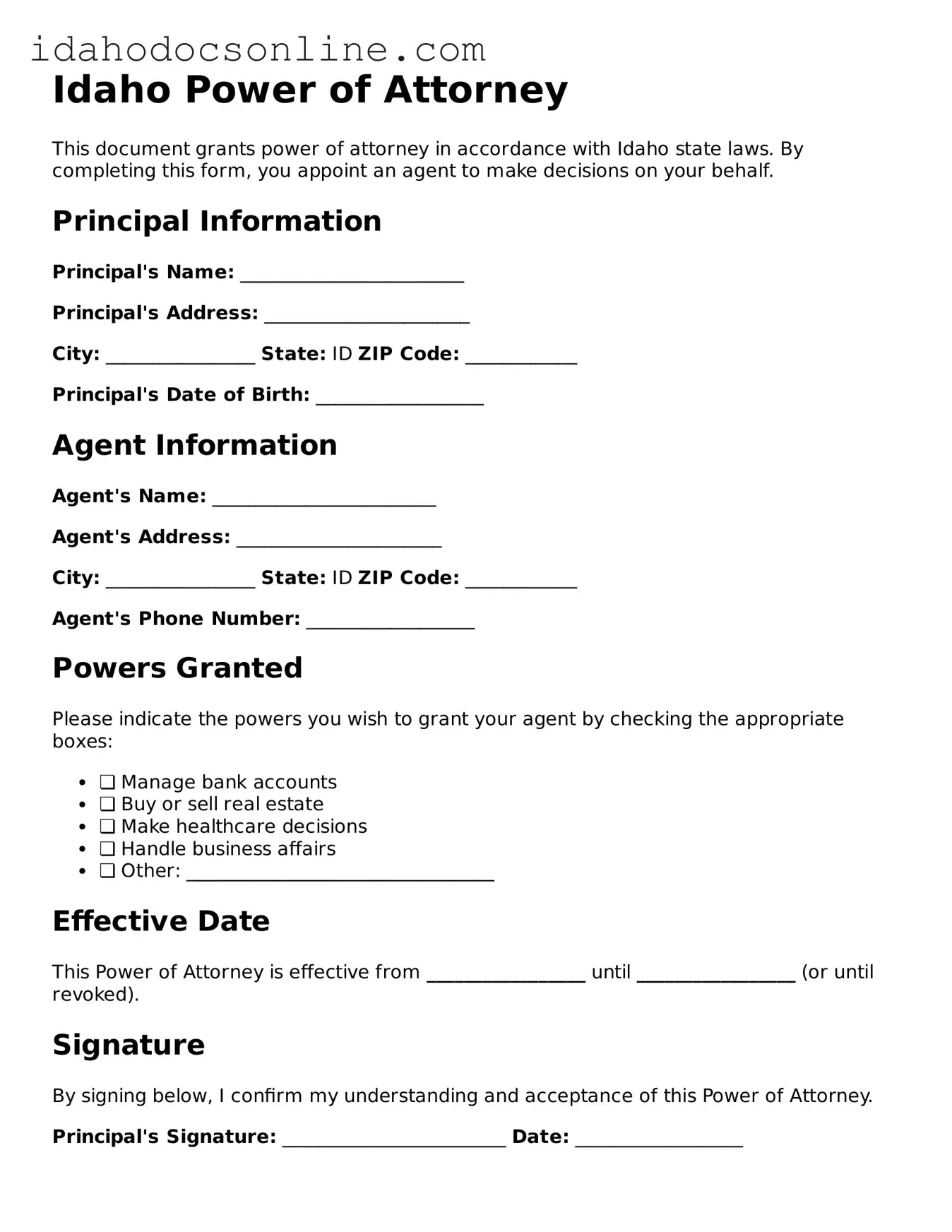Free Power of Attorney Form for Idaho
The Idaho Power of Attorney form is a legal document that allows an individual to appoint someone else to make decisions on their behalf. This form can be crucial in situations where the individual is unable to act due to illness, absence, or other reasons. To ensure your wishes are respected, consider filling out the form by clicking the button below.
Fill Out Your Document

Free Power of Attorney Form for Idaho
Fill Out Your Document
Need speed? Complete the form now
Complete Power of Attorney online — edit, save, download with ease.
Fill Out Your Document
or
Free PDF
